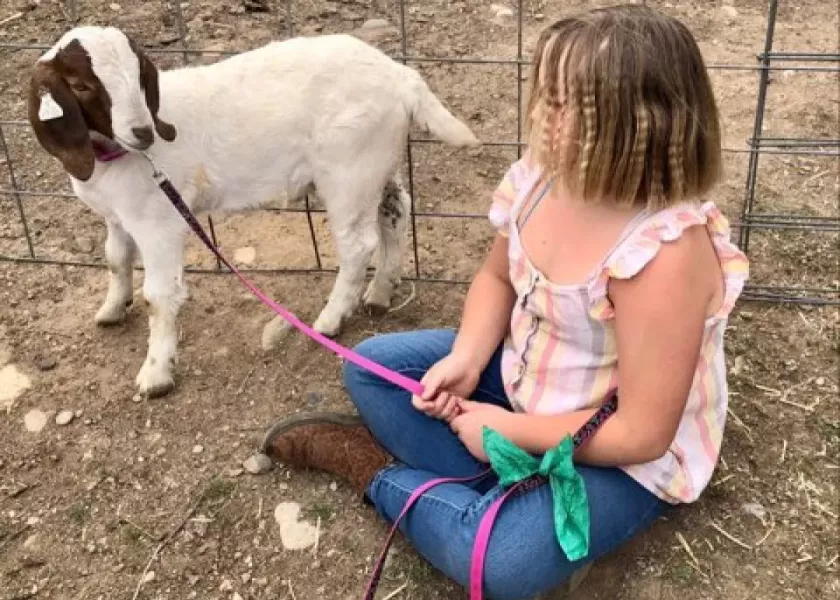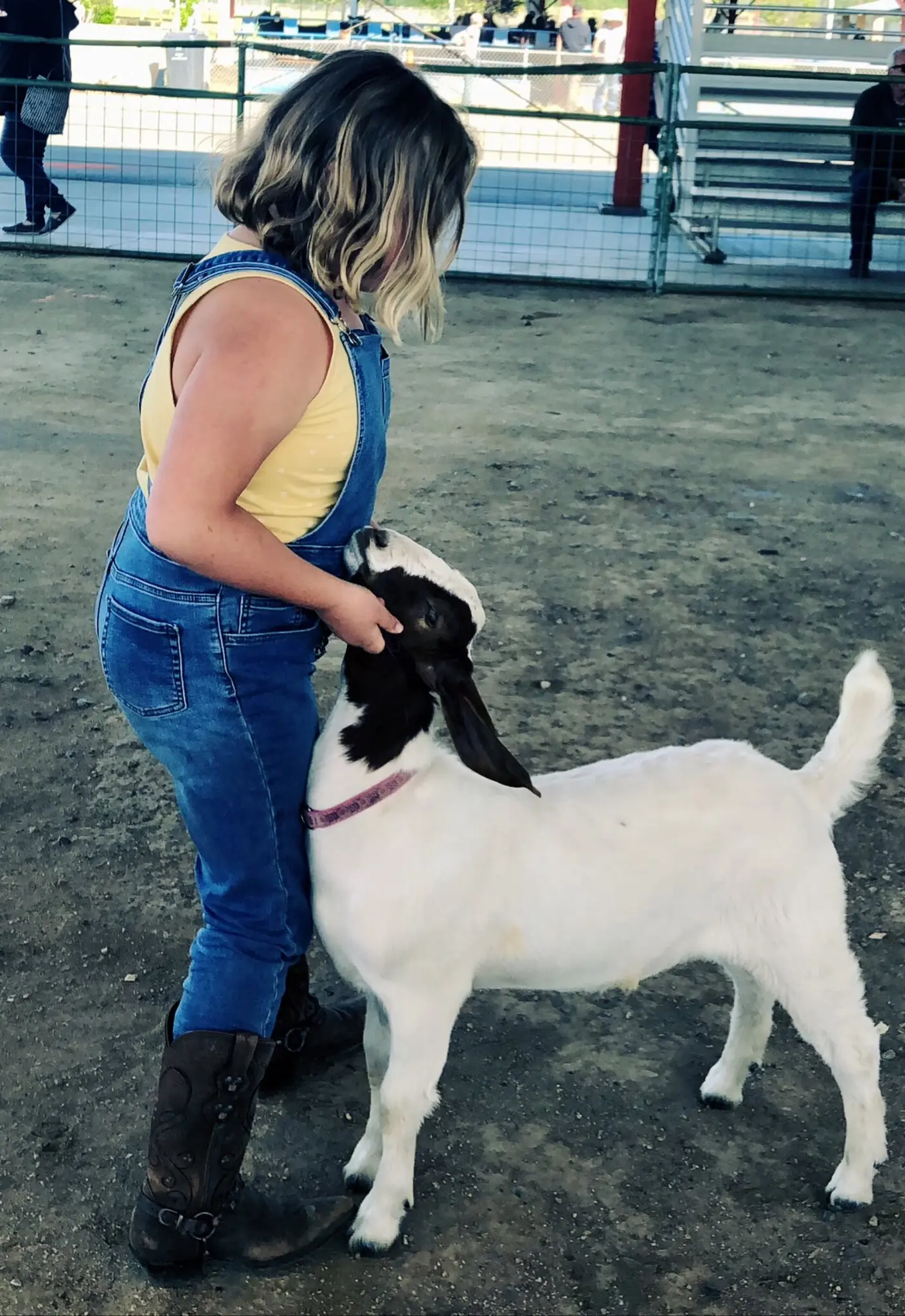A Girl, a Goat and the Law: The Shasta County, CA, Boondoggle

It is entirely possible the Shasta County, Calif., sheriff’s office and the Shasta District Fair have tarnished your image as a food producer more than any radical animal rights group. Both are guilty of actions that are at least ignorant and grossly at odds with the values the fair claims to promote.
This is a story about a 9-year-old girl and her pet goat, Cedar, and the fact grown-ups couldn’t figure out how to bend the rules enough so it didn’t end up written as a tragedy in the New York Times. That’s how it was framed by Nicholas Kristof in his column: “What a Girl’s Goat Teaches Us About Our Food.”
The story, of course, reveals little about “our food,” but offers a smorgasbord of opportunity for the anti-meat community to criticize meat production, as Kristof does so eloquently. Indeed, the only winner in this public relations debacle is Advancing Laws for Animals, a nonprofit law firm specializing in complex, novel issues of animal law.
In fact, the tale of the little girl and her goat received nationwide press coverage on CNN, USA Today, The Daily Mail, The Los Angeles Times, the New York Times, The Washington Post, Inside Edition, CBS News and many others.
First, Cedar’s story. Or more accurate, how Cedar became such a notorious outlaw the Shasta County sheriff dispatched two deputies – with a search warrant! – on a day-long trip to Sonoma County to retrieve him.

A year ago Jessica Long purchased a goat for her daughter’s 4H project. The girl began preparing to show Cedar at the county fair in June. As Kristof notes, “the girl and goat bonded. Soon Cedar was running to the gate to greet (the girl), and Long says that her daughter walked around with Cedar as if he were a pet dog.”
Cedar was shown and then sold in the 4H auction where state Sen. Brian Dahl (R) paid $902 for the $200 goat, a typical premium for bidders seeking to reward young 4H members. The girl was heartbroken, and a video taken that evening shows her embracing Cedar and sobbing. Unable to bear her daughter’s heartbreak, Long gathered up both the girl and the goat and removed them. As a fugitive from justice, Cedar was taken to a hideout in far-off Sonoma County. Before doing so, she told fair representatives she would reimburse Dahl and pay for any financial hit caused by the decision to keep him.
This would be the point where reasoned adults might bend the rules for a little girl and her pet goat. That didn’t happen. Fair executives were adamant that Cedar must be slaughtered. Long says she received a call from the fair’s livestock manager who allegedly demanded she return Cedar and threatened to have her charged with grand theft, a felony, if she didn’t.
“The fair industry is set up to teach our youth responsibility and for the future generations of ranchers and farmers to learn the process and effort it takes to raise quality meat,” Melanie Silva, the CEO of the fair, emailed Long.
The fair contacted the Shasta County sheriff, who promptly dispatched deputies to apprehend the fugitive goat. This whole hot mess is headed to court.
Long has sued the Shasta County sheriff claiming deputies wrongly seized the family’s goat and then apparently handed it over to the fair authorities. In their response, the county and the sheriff’s office acknowledge that the deputies “drove to Sonoma County to retrieve a goat” and claim that “no warrant was necessary to retrieve Cedar at the Sonoma Farm as they had consent from the property owner.”
Think about this for a moment. Shasta County sent two deputies on a 500-mile, 10-hour round trip to retrieve a $200 goat! Try explaining that to taxpayers come next election.
More important for livestock producers is how the Shasta County Fair and the Shasta County sheriff – both unencumbered by intelligence – created a bonanza for animal rights zealots. Pluck any of the stories about Cedar and visit the comments section. There you’ll find responses across the country nearly unanimous in their defense of the little girl, with many using the opportunity to attack livestock production as “cruel,” “inhumane,” “abhorrent,” etc.
Here are two examples from the NY Times that accurately capture the sentiment:
Craig writes: “There's a gigantic & worrisome unanswered question here. What kind of officials would agree to trigger such an absolutely cruel & ghoulish act against a child? Who are these people?”
R writes: “I can safely say I am completely against 4-H as an organization having learned what their values are. Insisting on slaughter and death when someone doesn't want to participate is completely abhorrent.”
Seizing on this opportunity, Advancing Laws for Animals is representing the mother and daughter in the pending lawsuits. Whether they prevail in court is likely secondary for the legal team who will relish the chance to argue for animal rights in open court – and the press coverage the case is sure to attract.







